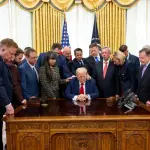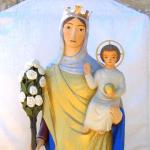I read an article by Dr. Adam Cifu recently in which he admitted that he has not made peace with Covid. What he meant by that is perhaps, not quite what one might think. Cifu meant that he was frustrated by people still living in fear of the disease. He said he had a tough time seeing people still wearing masks as anything other than political statements, not protection for compromised immune systems, or perhaps ill themselves. He was in the business of helping treat sick people, he said, and yet he was beginning to lose compassion for the ones who fear Covid as some kind of plague.
It’s not hard to understand, though. The past three years saw agonizing and monumental shifts in how we all view the world, and shoehorned us into positions that either make us comfortable, or perhaps even feel more righteous – if only because our position is we’re unsure who is telling us the truth and who is not. This, of course, is the ultimate test of any relationship. Do we trust those with whom we’re dealing, or don’t we?
Forgiveness is not trust
Forgiveness is something deeper, perhaps even richer, than trust. It’s the action that occurs when someone wrongs us, and so often we are told that forgiveness is not entirely for that person, but for ourselves so that we may move on into a more abundant life. In biblical terms, if God has sacrificed His Son so that we may live with Him eternally, even in our sinful state, then the least we can do is forgive someone who wronged us. It’s a fair lesson, and it seems simple enough.
But it is also true that part of our sinful nature is the inability to just “let go” of what happened to us. Rehabilitation programs exist in everything from drug abuse to eating disorders to family abuse, and are growing and raking in millions of dollars daily because as a species, largely, we cannot let go of our pasts. Wars ignite across borders because of the inability to let go of historical wrong-doings perceived now as weaknesses that might cripple the unforgiving aggressor.
No easy answers
In quick succession, then, the entire planet fell back on its heels between 2020 and today and not just because of a virus, but because the very people charged with telling us the whole truth, didn’t. We are still suffering the aftershocks of a world that tries to turn off the very impulse that makes us human, the desire to reach out, be with one another, comfort and trust one another. In a mere three-years’ time, all of us are looking over our proverbial shoulders, wondering why compassion, truth, understanding, and love did not win the day.
I would like very much to have a neatly tied conclusion to these fears, these traumas and tell you that all will be well. We can learn to trust our public health agencies, our politicians, our city officials again. I’ve wanted to trust them myself. I want that feeling of comfort that there is sincerity and honesty that will break through the mad fog of political positioning, of greed and of power-hungry people, and properly tell them all that we no longer require their services. But we all know that it’s not possible to make such a statement. And a sense of hopelessness surrounds us at times when we realize we’ve lost control of ourselves, our families, our livelihoods, all things that, perhaps, we took for granted.
Trust in action
The very basis of faith is trust, though. God seeks our trust and frankly tells us that all other trusts are unworthy, and don’t amount to much. Looking for connection to others without faith leads to disappointment. “In God we trust,” is on our coins in the U.S. and that little aphorism was a rock to cling to for so long.
Now, however, it appears that must work on trust daily and, like forgiveness, it’s a verb, not a noun. We have no more illusions that we can simply “trust” that things will work out. All along, the Bible was showing us that trust was a verb. Job is tested by Satan and after such loss, such grief, still places his trust in God. Mary trusts God to help her navigate the dangerous narrows of a society which holds her accountable for being unwed and pregnant. Joseph trusts that Mary is telling him the truth.
And here’s the thing – humanity is a glorious creation, and we are all heirs to the promise of that creation. But humanity is also free to do as it chooses, and if we didn’t see before, we can certainly see now that if we rely entirely on ourselves, heartbreak, loss, trauma and grief will ensue. Trust, then, is an action word, and choosing who to trust is a daily, focused and sincere activity.







